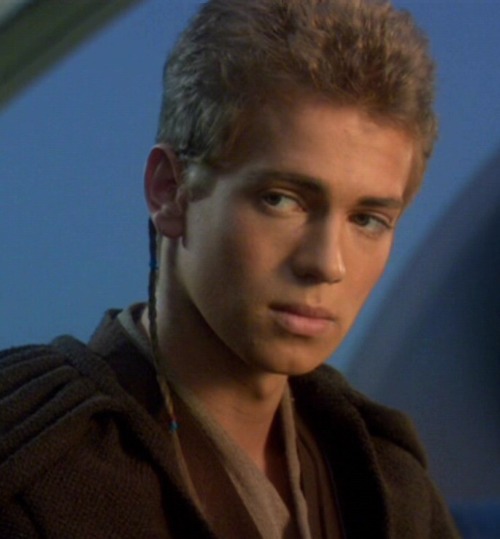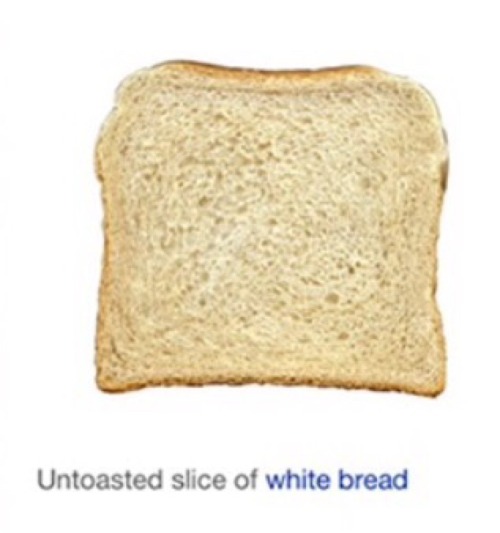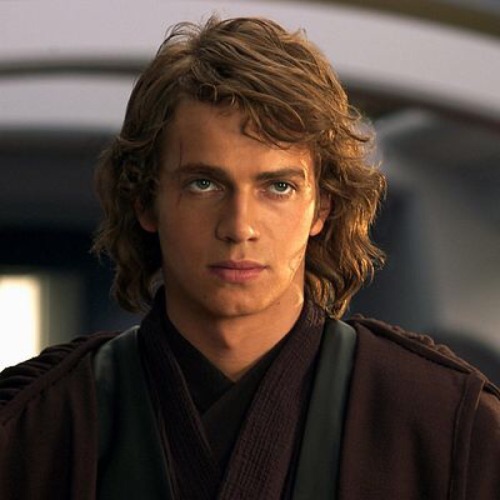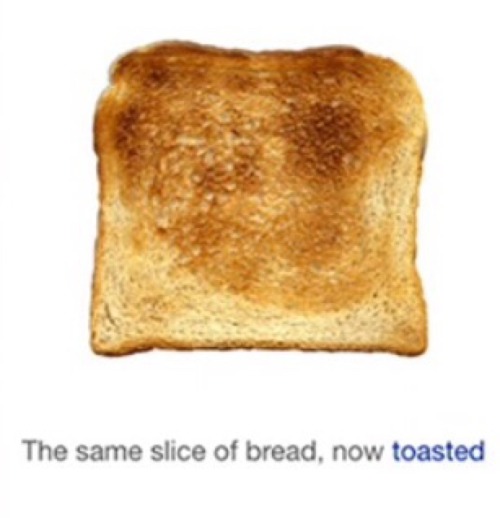Latest Posts by weishenmewwx - Page 7
As a former student of biology and an eternal fan of Ghibli, and this hits really deeply. 😁
biologists will be like this is a very simplified diagram of a mammalian cell

chemists will be like this is a molecule

Still trying to figure out why I like this look so much…
Would you be willing to talk about how standards of masculinity and femininity in Asia differ from those in Europe/North America? I know, it's a ridiculously broad question but I think you mentioned it in passing previously and I would be really interested in your answer especially in the context of the music industry and idols. I (European) sometimes see male Asian idols as quite feminine (in appearance, maybe?) even if they publicly talk about typically masculine hobbies of theirs.
Hi Anon,
Sorry that it took me over a month to get to this question, but the sheer volume of research that is necessary to actually answer this is significant, as there is an enormous body of work in gender studies. There are academics who have staked their entire careers in this field of research, much of which isn’t actually transnational, being that regional gender studies alone is already an incredibly enormous field.
As such, in no way can I say that I’ve been able to delve into even 1% of all the research that is out there to properly address this question. While I can talk about gender issues in the United States, and gender issues that deal with Asian American identity, I am not an expert in transnational gender studies between Asia and Europe. That being said, I’ll do my best to answer what I can.
When we consider the concept of “masculinity” and “femininity,” we must first begin with the fundamental understanding that gender is both a construct and a performance. The myth of gender essentialism and of gender as a binary is a product of patriarchy and compulsory heterosexuality in each culture where it emerges.
What you must remember when you talk about gendered concepts such as “masculinity” and “femininity” is that there is no universal idea of “masculinity” or “femininity” that speaks across time and nation and culture. Even within specific regions, such as Asia, not only does each country have its own understanding of gender and national signifiers and norms that defines “femininity” or “masculinity,” but even within the borders of the nation-state itself, we can find significantly different discourses on femininity and masculinity that sometimes are in direct opposition with one another.
If we talk about the United States, for example, can we really say that there is a universal American idea of “masculinity” or “femininity”? How do we define a man, if what we understand to be a man is just a body that performs gender? What kind of signifiers are needed for such a performance? Is it Chris Evan’s Captain America? Or is it Chris Hemsworth’s Thor? What about Robert Downey Jr.’s Tony Stark? Do these characters form a single, cohesive idea of masculinity?
What about Ezra Miller’s Barry Allen? Miller is nonbinary - does their superhero status make them more masculine? Or are they less “masculine” because they are nonbinary?

Judith Butler tells us in Gender Trouble (1990) and Bodies That Matter: On the Discursive Limits of “Sex” (1993) that what we call gender is inherently a discursive performance of specific signifiers and behaviors that were assigned to the gender binary and enforced by compulsory heterosexuality. She writes:
Insofar as heterosexual gender norms produce inapproximate ideals, heterosexuality can be said to operate through the regulated production of hyperbolic versions of “man” and “woman.” These are for the most part compulsory performances, ones which none of us choose, but which each of us is forced to negotiate. (1993: 237)
Because gender norms vary regionally, there are no stable norms that coalesce into the idea of a single, universal American “masculinity.” What I mean by this is that your idea of what reads as “masculine” might not be what I personally consider to be “masculine,” as someone who grew up in a very left-leaning liberal cosmopolitan area of the United States.
What I am saying is this: Anon, I think you should consider challenging your idea of gender, because it sounds to me like you have a very regionally locked conception of the gender binary that informs your understanding of “masculinity” and femininity” - an understanding that simply does not exist in Asia, where there is not one, but many different forms of masculinity.
China, Japan, and South Korea all have significant cultural differences and understandings of gender, which has a direct relationship with one’s national and cultural identity.
Japan, for example, might consider an idol who has long, layered hair and a thin body to be the ideal for idol masculinity, but would not consider an idol to be representative of “real” Japanese masculinity, which is epitomized by the Japanese salaryman.

South Korea, however, has a very specific idea of what idol masculinity must look like - simultaneously hypermasculine (i.e. extremely muscular, chiseled body) and “feminine” (i.e. makeup and dyed hair, extravagant clothing with a soft, beautiful face.) But South Korea also presents us with a more “standardized” idea of masculinity that offers an alternative to the “flowerboy” masculinity performed by idols, when we consider actors such as Hyun Bin and Lee Min-ho.

China is a little more complex. In order to understand Chinese masculinity, we must first understand that prior to the Hallyu wave, the idea of the perfect Chinese man was defined by three qualities: 高富帅 (gaofushuai) tall, moneyed, and handsome - largely due to the emergence of the Chinese metrosexual.
According to Kam Louie:
[The] Chinese metrosexual, though urbanized, is quite different from his Western counterpart. There are several translations of the term in Chinese, two of the most common and standard being “bailing li'nan” 白领丽男 and “dushili'nan” 都市丽男,literally “white-collar beautiful man” and “city beautiful man.” The notion of “beautiful man” (li-nan) refers to one who looks after his appearance and has healthy habits and all of the qualities usually attributed to the metrosexual; these are also the attributes of the reconstituted “cool” salaryman in Japan, men who have abandoned the “salaryman warrior” image and imbibed recent transnational corporate ideologies and practices.
[...]
In fact, the concept of the metrosexual by its very nature defines a masculinity ideal that can only be attained by the moneyed classes. While it can be said to be a “softer” image than the macho male, it nevertheless encompasses a very “hard” and competitive core, one that is more aligned with the traditional “wen” part of the wen-wu dyad that I put forward as a conventional Chinese ideal and the “salaryman warrior” icon in Japan. Unsurprisingly, both metrosexuality and wen-wu masculinity are created and embraced by men who are “winners” in the patriarchal framework.
The wen-wu 文武 (cultural attainment – martial valor) dyad that Louie refers to is the idea that Chinese masculinity was traditionally shaped by “a dichotomy between cultural and martial accomplishments” and is not only an ideal that has defined Chinese masculinity throughout history, but is also a uniquely Chinese phenomenon.
When the Hallyu wave swept through China, in an effort to capture and maximize success in the Chinese market, South Korean idol companies recruited Chinese idols and mixed them into their groups. Idols such as Kris Wu, Han Geng, Jackson Wang, and Wang Yibo are just a few such idols whose masculinities were redefined by the Kpop idol ideal.

Once that crossover occurred, China’s idol image shifted towards the example South Korea set, with one caveat: such an example can only exist on stage, in music videos, and other “idol” products. Indeed, if we look at any brand campaigns featuring Wang Yibo, his image is decisively more metrosexual than idol; he is usually shot bare-faced and clean-cut, without the “idol” aesthetics that dominate his identity as Idol Wang Yibo. But, this meterosexual image, despite being the epitome of Chinese idealized masculinity, would still be viewed as more “feminine” when viewed by a North American gaze. (It is important to note that this gaze is uniquely North American, because meterosexual masculinity is actually also a European ideal!)

The North American gaze has been trained to view alternate forms of masculinity as non-masculine. We are inundated by countless images of hypermasculinity and hypersexual femininity in the media, which shapes our cultural consciousness and understanding of gender and sexuality and unattainable ideals.
It is important to be aware that these ideals are culturally and regionally codified and are not universal. It is also important to challenge these ideals, as you must ask yourself: why is it an ideal? Why must masculinity be defined in such a way in North America? Why does the North American gaze view an Asian male idol and immediately read femininity in his bodily performance? What does that say about your North American cultural consciousness and understanding of gender?
I encourage you to challenge these ideas, Anon.
“Always already a cultural sign, the body sets limits to the imaginary meanings that it occasions, but is never free of imaginary construction.” - Judith Butler
Works Cited
Butler, Judith. Gender Trouble. New York, NY, Routledge, 1990. Butler, Judith. Bodies That Matter: On the Discursive Limits of Sex. New York, NY, Routledge, 1993. Flowerboys and the appeal of 'soft masculinity' in South Korea. BBC, 2018, Louie, Kam. “Popular Culture and Masculinity Ideals in East Asia, with Special Reference to China.” The Journal of Asian Studies, Volume 71, Issue 4, November 2012 , pp. 929 - 943 Louie, Kam. Chinese, Japanese, and Global Masculine Identities. New York, NY, Routledge, 2003.
So, a rant and a request for advice before I begin my dreadfully important hunt/research:
I’ve been loving the WeComics app, originally for reading Mo Dao Zu Shi in English (before I improved and trusted my Chinese), then for a bunch of other Chinese and translated-from-Chinese manhua. I’ve barely been on tumblr recently because I’ve been head-over-heels in love with 化龙记.
And then I noticed that 化龙记 is also in English on the app as “Tale of Dragon Morph”, so I open it up and, Lo and Behold, there is more/new chapter-header art! And so many more panels that help explain the flow of the plot — it makes sense now!
But as I read the English version, I notice that it’s Missing Scenes. Useful, important scenes that help with Character Development and Logical Flow.
What’s up with these manhua? Why are there different missing scenes in each language? Is it just WeComics?
Is there a manhua app out there that is Complete?!?!?
Help!!!
—————————-
Grumpy follow-up: WeComics is being taken over by WebNovel, which doesn’t appear to have Any manhua at All 😠.
And KuaiKanManHua is typically censored. No cute images of one character washing another’s back, no super-useful panels showing how the protagonist escapes his lecherous captor’s bedroom. Nope.
Sigh. I will keep searching.

Now you know — view on Instagram https://ift.tt/3AGm34f






The portraits of Yiling Laozu






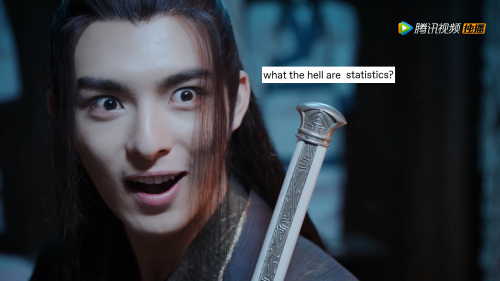
The Untamed as text posts (80/?) mad scientists edition
After forwarding this post to multiple times, I finally realize that I should just repost it.
I only know one mycologists, and I can attest that he fits the above description of mycologists quite well. He is also a clown and a balloon artist extraordinaire.
I need more mycologists friends.

im loving this article written by som mycologists who accidentally got high as fuck on fly agaric
So true, so true.
Be sure to read all the comments, too.
whenever people in fandom refer to lan wangji as “lan zhan” there is an instinctive part of me that reacts like “how dare you be so informal, that is ‘lan wangji’ or ‘hanguang-jun’ to you” which is, frankly, absurd
(but also. how dare you be so informal)
Who’s The Murderer | Paradise Island “Horror Nursery Rhymes” - Zhou Shen
Keep reading
Rec: The Phenomenon called “Qin Shen Shen”
What is “Qin Shen Shen”?
Qin Shen Shen is a singing duo formed in 2019, in the 1st season of a Chinese music competition show called “Wo Men De Ge” aka “Our Song”. It’s made of Zhou Shen and Li Keqin, two experienced solo singers who met for the 1st time on the show. “Qin Shen Shen” is their team name.
But who are they?
1) Zhou Shen:
A singer from mainland China, mostly known for singing OSTs of C-dramas and movies, including CQL (Xue Yang’s theme) and DMBJ ChongQi.
28 years old. (5 yrs old, when together with Li Keqin)
Famous for his naturally high-pitched voice, similar to a soprano or mezzo-soprano.
Wants to lower people’s expectations, but keeps blowing people’s minds, so he’s stuck in a vicious circle of growing expectations and one-upping his past self.
Most famous song is called “Big Fish”.
Self-professed insecure.
Talks a lot.
2) Li Keqin:
A veteran singer from Hong Kong, who debuted 30+ years ago.
53 years old but is secretly 8 (3 yrs old, when with Zhou Shen)
Is known for having such great vocal stability when singing live that he earned himself the nickname: “CD-Qin”.
Will make mistakes in Mandarin but look really cute doing it
Famous songs include “Half-Moon Serenade” and “Great Auditorium Concert Hall”.
Is a good sport. Is good at sports.
*is stressed* *pretends to stay calm* *slays* *rinse and repeat*
So why should I check them out?
“Match made in heaven” is the moniker given to them the 1st time they sang together. That stuck for a reason. Li Keqin and Zhou Shen are a “1+1= greater than 2″. In theory, they’re worlds apart, but combining them sets off sparks. Whether it’s their understanding of how a song should be sung, their skills, or their style in singing duets: all match. On top of that, their voices’ timbre are weirdly complementary. Li Keqin’s baritone fits under Zhou Shen’s floating pitch like an anchor grounding them. Zhou Shen’s sound brings both voices to greater heights. The exponential added value they bring each other as a duo is just a rare find in any circle. In short: You’re in for a musical FEAST.

Chemistry. Chemistry. Chemistry. Complementary in some ways, similar in others, how they magically fit like a glove right off the bat is itself a wonder. Zhou Shen’s “prepare-for-the-worst” attitude goes hand-in-hand with Li Keqin’s apparent optimism. When one throws, the other’s there to receive. Sometimes they complete each other’s sentences, other times they’re like night and day…In all cases, what a team.

Laughs!! So many laughs! When they’re not singing, Qin Shen Shen is a full-time comedy duo. Throwing each other under the bus is a skill they acquired in 0 time and make use of daily. And if they’re not the ones throwing the jokes, they sure are receiving well. Dorks.

Cuteness overload. Both are just incredibly likeable and cute individuals onscreen. (yes both) Unbelievable. You have to see it to believe it.

A heartwarming dynamic. At the end of the day, QSS is a duo formed for a competition on TV. But even with the most cynical eyes, what you see is a dynamic between 2 very different singers of different generations, who have to get to know each other enough to collaborate in a short time, within a dynamic that fits. And it works! Boy do they make it work!!

Where to check them out?
If you’re short on time, some of their songs to pick from: “Under Mount Fuji”, “All the Lovers in the World”, or “Wild Wolf Disco”.
If nothing else, give their audio clip a chance: Clean vers of “Under Mount Fuji” without audience reactions, and a compilation of clean audios to cherry-pick from.
If you decided you want to see more of them, they’re a regular on “Wo Men De Ge/Our Song” S1: Ep. 1 with Eng subs. (More info on the show here)

Give the “match made in heaven” duo a try!! They don’t disappoint!
青 is a great color! It can mean anything you want it to mean! 😝
Speaking of “Qing”, I highly recommended “Why isn’t the sky blue” by Radiolab. You can also read the Transcript, if you prefer.
青, or the most confusing colour word in old Chinese ever.
This is because while there is a modern distinction between 綠 green and 藍 blue, in the past we had 青 / qing for ‘nature’s colour’. In any old text (and old words still used) it could mean, depending on context:
blue
youthful / young
pale yellow.
green / verdant
the band of colour just above blue in the rainbow (紅橙黃綠青藍紫, which puts 青 in between green and blue)if you’re a kid but when you get to form 1, you get that the rainbow is actually 紅橙黃綠藍靛紫, so the blue-green we thought was blue green is now blue.
The blue of blue white porcelain (青花瓷)
clear sky blue - 青天.
indigo blue (青出於藍而勝於藍 / qing comes out of the indigo plant and yet it is more vibrant than indigo)
black.
Also, 青衫 may read “green clothes,” but together and describing historical / mythical figures it just means “scholar’s robes,” where the word 青 means ‘young’ and the robes could be any colour. It describes the style, not the colour.
A line from Peach Blossom Debt: 青衫公子站起身,本仙君驚且喜,恍若東風拂過,三千桃樹,花開爛漫。 The young noble clad in scholar’s robes stands, and this immortal one is pleasantly surprised, as though the east wind chanced by and every brilliant flower on three thousand peach trees blossom.
So, a very important question — what colour are Kunlun’s robes? Chapter 68:
Keep reading
Wherein we have a meltdown over just how filthy of a mouth Zhao Yunlan has in the Guardian webnovel, so like, reader beware I guess.
Moggiesandtea: I’m gonna be curious to see what ZYL calls Shen Wei after they’ve hooked up, since he’s been calling him his wife and variants thereof for 70 some chapters
Keep reading
Thank you, @anambermusicbox !
September 29 Day Countdown (6/29): 2019/02/19 Global Chinese Golden Chart 《流行音乐全金榜》 Live Broadcasted Radio Interview on Dragonfly FM
Highlights:
(14:15) Interviewer talks about how Zhou Shen’s activity on Weibo is completely unlike a celebrity; Zhou Shen mentions that Gao Xiaosong says he’s never acted like a celebrity and often tells him: “Zhou Shen, you’ve already debuted for so many years, how is it that you actually behave less and less like a celebrity?”
(21:40) “What are Shengmi to you?”:
Zhou Shen: They’re an inexplicable existence. Because, I’ve told them so many times, that I’ve always never understood what motivates them—not only my shengmi, but even just fans in general—what motivates them to support their favourite singer or idol. I feel like, personally, I can’t do much for them. All I can really do is sing some songs. […] I feel at a loss; I feel like I have no way to guarantee something good to repay them for their continuous support, for their love. Because I’m a really insecure person, and yet they’re able to give such an insecure person some sense of security… you can imagine how great their strength is.
(26:45) Interviewer asks if Zhou Shen has a 小名 (family nickname):
Zhou Shen: Because 深 and 星 are pronounced exactly the same in hunanese, my family has always called me Xingxing. When getting me registered, they asked the person doing the registration to register “our family’s Xingxing”, and the person said “okay, and your family name is Zhou,” so they literally registered me as “Zhou Xingxing” (周星星) (*Interviewer laughs*).
[I didn’t know this was my original legal name] until my high school entrance exam, when they called out “Zhou Xingxing” during rollcall, and no one responded. They thought it must’ve been a typo at first, because when they called the name out, the entire class was like “HAHAHAHAHA WHO THE HECK IS NAMED THAT”, and I was also there laughing like “HAHAHAHAHA WHO THE HECK IS NAMED THAT” (*laughs*) And then after everyone was called, they asked whether there was anyone who hadn’t been called. I said “I haven’t” and they said “Okay this must be you”, then everyone was like “HAHAHAHAHA YOU’RE ZHOU XINGXING” […] Afterwards, I went and legally changed my name back to Zhou Shen.
Keep reading
Guess who finally finished reading 镇魂 Guardian!
镇魂 translations etc. masterlist
I was going to put up a masterlist of my translations and then decided I might as well compile a list of all the Guardian 镇魂 novel translations that I know of, so they’re available in one place for your convenient reading. :D This also includes links to some novel meta posts and name/honorific discussion. ♥ to my fellow Guardian fans.
Keep reading
A co-worker the other day commented on how he had heard that the Chinese government was trying to crack down on femininity in men in the media, and I went crazy trying to find that awesome video of Wang Yibo wearing Chanel runway looks. Women’s Chanel runway looks. And I was blathering on and on (while still trying to stay professional and not-weird-obsessed) about how Wang Yibo can just DO that, and I can’t imagine anyone being able to stop him, or even slow him down, just because he likes wearing dangly earrings and orange eyeshadow. And women’s jackets.
I couldn’t find the video again on tumblr, but I had some success on YouTube:
https://youtu.be/hIAOXIf9Alw
Enjoy!
Do you all know 杨可爱Yang Ke’ai yet?
She does lots of popular covers and mash-ups and “how to memorize 5-50 Chinese poems via music” songs in a Classical Chinese style (chinoiserie?) with a UKULELE. If you’re not watching her beautiful videos of her singing and playing music in full hanfu, you’d think she was playing a Pipa or a Guzheng or even a Guqin, but, no — that’s a Ukulele.
Anyway, have you all heard her Mo Dao Zu Shi mashup yet? 14 songs from Audio Drama, Donghua, and Fan Music (a lot of the creators of which were also part of the Audio Drama and Donghua).
It’s awesome and deserves many many views. Enjoy!
https://youtu.be/plf5KFqvUhg

So, I’m getting to the very end of the novel 镇魂 Guardian by Priest, and I know that everyone is super worried that Chaos 混沌 is about to envelop the world, but the more I read, the hungrier I get…
What a difference one radical makes.

Behold, my Dictionary Collection.
(Not Including the dictionary that I actually normally use, or the online dictionaries that I live by.) (I gotta get myself a multi-volume Cantonese dictionary like my mom’s someday. And she has the coolest 成语词典 Idiom Dictionary, too!)
i am once again thinking about lan zhan, lan wangji, hanguang jun, lan er gege and literally how he's the best boy ever
WangXian Phoenix Mountain Kiss Censored Panels?




Ok I don't know how official this is...if it's like that "leak" of WangXian's drunk kiss or just a really really good fanart, but these're SUPPOSEDLY the missing panels from WangXian's Phoenix Mountain kiss in chap 185 of the manhua that were chopped due to good old censorship.
It's so weird cuz I just read another danmei manhua that had their kiss intact and they even kinda showed a nonexplicit handjob, so if these are indeed official, I wish they wouldn't be so hard on MDZS.
~
credit to weibo in last image above.
https://youtu.be/clxAsAshb3E
Isn’t it awesome when your absolute favorite singer ever sings an absolutely sublime version of the theme song to one of your favorite tv shows ever, based on one of your favorite favorite books ever?
There are Reasons for the Lan Rules! Imagine how crazy GuSu would be if they all roamed around wantonly like WWX…
lan xichen was really like *traumadumps the weirdest fucking story you’ve ever heard* *flute solo* “do you know my brother is in love with you?” at like 2am in the span of five minutes and no one stopped him
Saturday, August 7, 2021. That’s the release date for Mo Dao Zu Shi season 3!!!!!!!
!!!!!!!!!!!!
Excuse me while I go schedule my Season 1 and 2 marathon so that my memories will be perfectly fresh and ready for Season 3 on August 7!!!!!!!!!
(Sources: https://youtu.be/YzvNsFSw0RY and https://www.yualexius.com/2021/01/mo-dao-zu-shi-season-3.html. I really really hope that they’re right!!!!!!)

WHEN SANITY IS NOT HOME
Starring: DaGe, Director Nie, ErGe, and Yaomei.
Sorry, I can't breathe👻
I feel like this performance by Zhou Shen isn’t talked about enough. I mean, yah it has over 2M views, but that’s, like, only slightly more than the population of my city. Not enough!
https://youtu.be/pJnRnhIEJgU
I never used to like breathy singing or slow, romantic songs until I heard Zhou Shen, and then I fell in love with His breathy, romantic singing.
And then he gets up and uses his unbelievably angelic voice to get totally goofy In The Same Song.
😍







